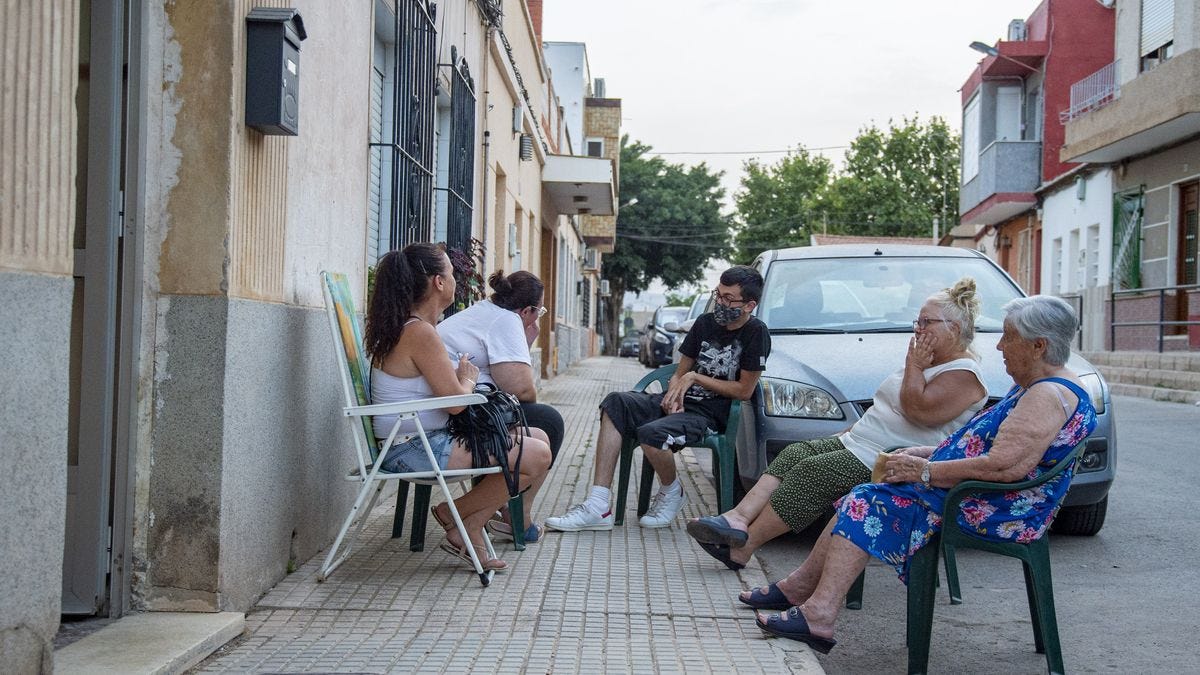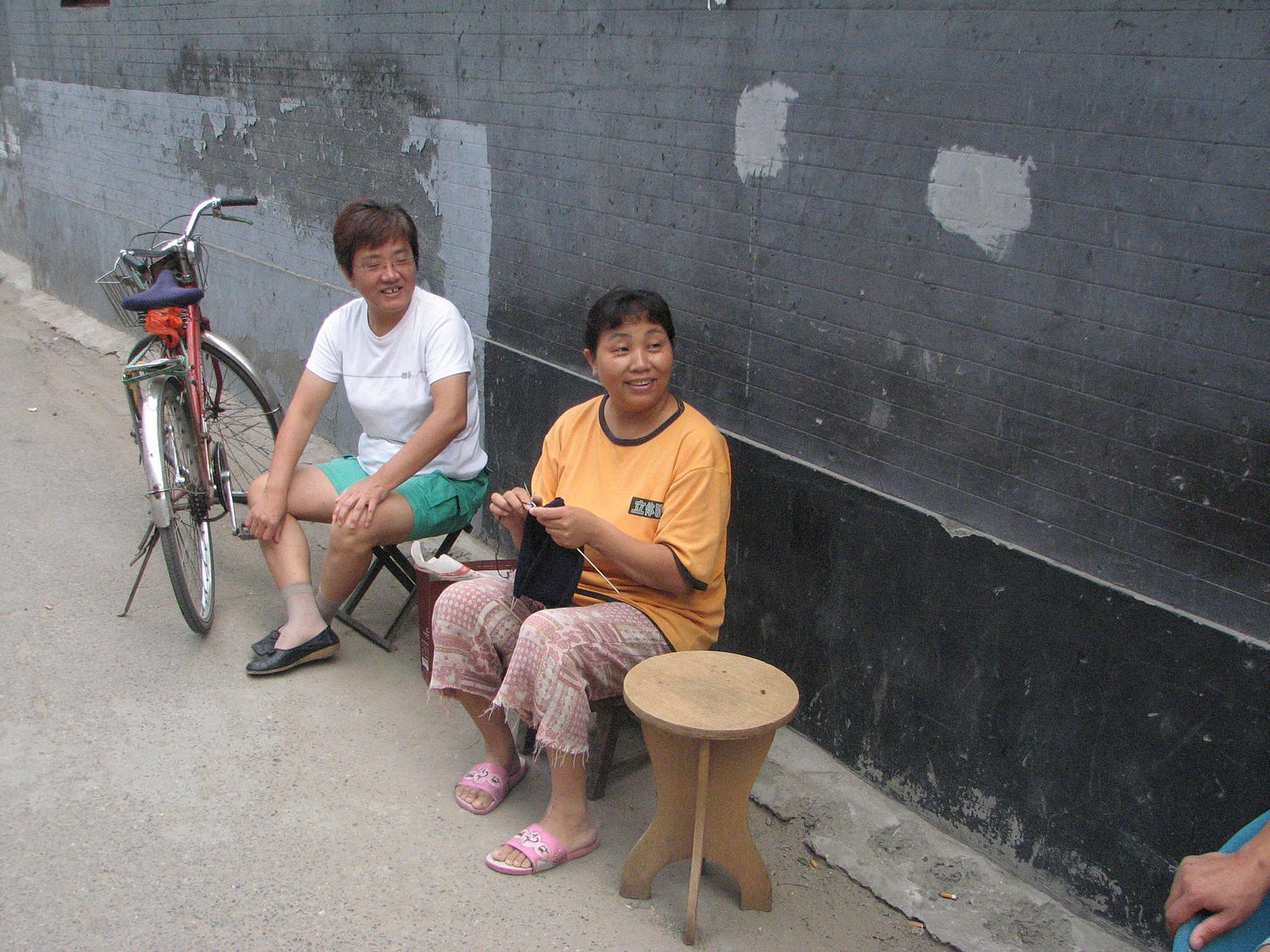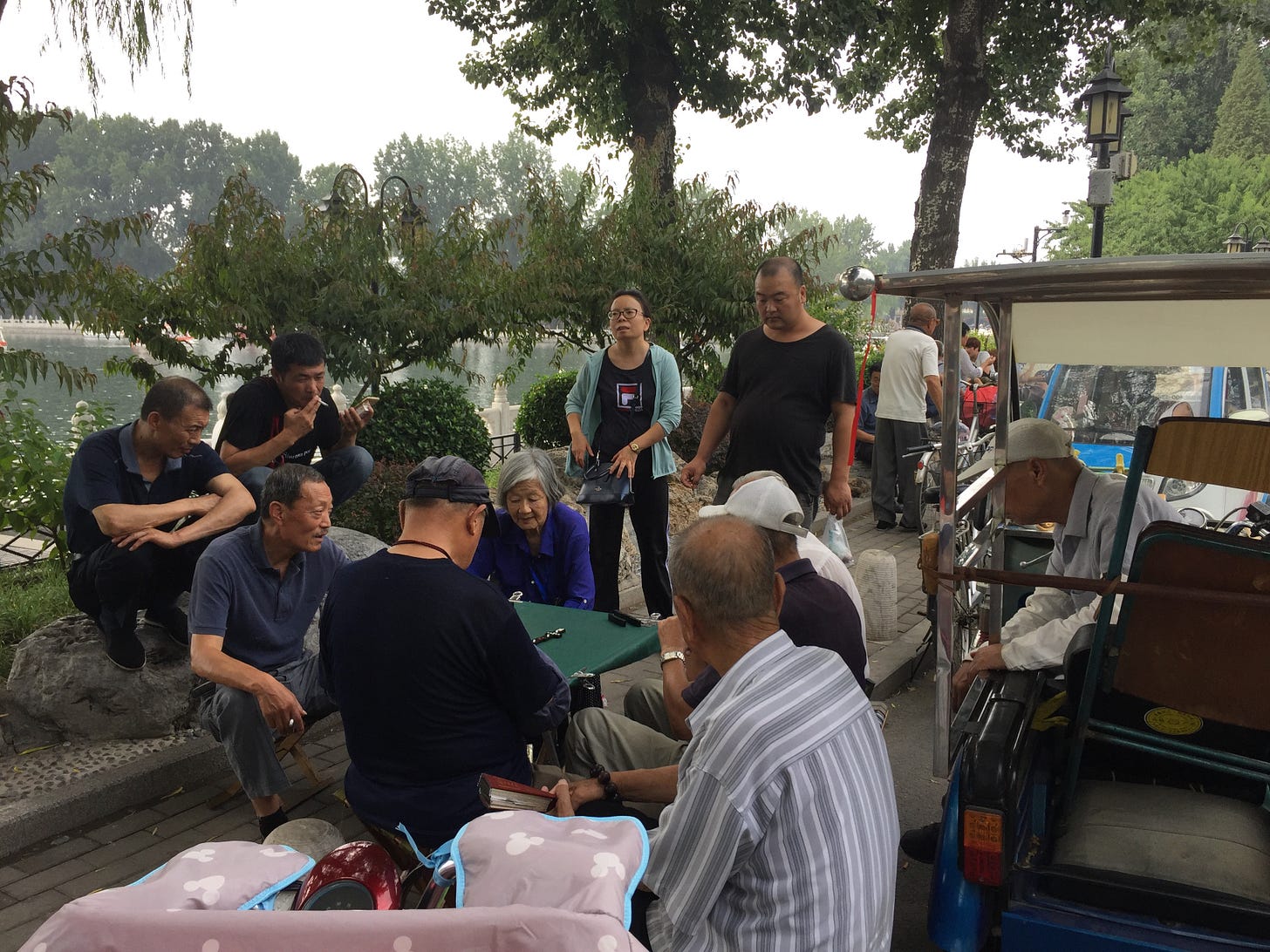What do wild tigers and chatting with your neighbours have in common? They are both endangered. So much so that one town in southern Spain, Algar, is applying to get UNESCO intangible cultural heritage status for the practice of charlas al fresco or chats out in the open.
Doorstep gossip sessions are a staple way of companionably passing the sweltering summer evenings, not just in Algar, but much of rural and small-town Spain. Julio and I often spend time in a village called Hoyos, in the sparsely populated central province of Extremadura. It’s an area of cork trees and olive groves. The bulls outnumber the human inhabitants. In the summer, the mercury rises to the stratosphere and very long afternoon siestas are the norm.
Having no Englishmen or mad dogs in the vicinity, the cobbled streets of Hoyos are almost entirely deserted until the sun starts to lose some of its fury in the evening. That’s when chairs are set out in the alleyways outside people’s homes; pets and babies make an appearance. Older ladies produce folding fans with which they shift the heavy air to and fro.
Everyone complaints about the heat and once that’s out of the way, the conversation eddies on to village gossip: that Indian lady, married to the man who owns the house at the top of the hill. They’ve been coming more recently this last year, everyone’s noticed. Where is she from again? India. I see, yes she does look Bolivian? No, no, she’s india from India. Where?
And so the charlas al fresco proceed.
For me the scene is entirely familiar from my time living in Beijing’s hutong neighbourhoods between 2003-2008.The hutongs - intersecting lanes that made up urban villages - were the last remaining organic connection between 21st century Beijing and its layered past. A few dated back to the 14th century Yuan dynasty and retained a charm belied by their dilapidated outward appearance.
In imperial times they had been the playground of wealthy families who had resided there in commodious, traditional-style, courtyard homes called siheyuan. After the Chinese Communist Party took power in 1949, most of these residences were appropriated by the state and allocated as accommodation to factory workers. Homes that had for centuries housed the elite were transformed into over-crowded dormitories.
But even though the hutongs had degenerated into slum-like conditions, they remained full of character and community. Crowded quarters forced people out on the streets, so that much of life was performed in public. Impromptu games of mahjong and checkers went on late into the night.
I could mark mid-morning by the clackity-clack of our local knife-sharpener as he passed by, and late afternoons by the newspaper vendor calling out "Wanbao! Wanbao! Beijing Wanbao! (Beijing Evening News)!" Goldfish sellers rode tricycle-carriers filled with glittering fish in plastic bags. In the winter there was the coal-briquette vendor and the candied-crabapple man. In spring, the ventilator cleaner cycled around offering his services in the aftermath of seasonal dust storms.
And every evening there was gossip. The toilet in the house we rented had a window up high that that opened out onto the street, right by the local xiao mai bu, a street corner shop that sold cigarettes, beer and pots of yogurt. Many of our huotong neighbours had set down stools and ripped up armchairs outside the shop. In effect, it served as the local salon.
On my first evening using the facilities in our home, I’d picked up the word “Indian” or “Yindu” drifting in through the window and began to pay more attention to the animated conversation emanating from the xiao mai bu. “Oh! So she’s Indian?” queried a baritone? “Must be, I think,” replied an alto. “But the husband? He’s not dark enough?” came back baritone. “Yes, she’s black but he’s white. Must be from different countries,” concluded alto.
Evidently, I am a favoured topic of charlas al fresco around the world.
So why is chatting, something one imagines to be a universal human proclivity, so endangered that it might one day soon be on a UN “heritage” list?
The answer lies in a combination of wealth, architecture and technology. Wealthier people erect walls around their homes. High-rises promote atomization. And technology allows for an infinitely engaging relationship with a screen.
Throw in the COVID pandemic with its mask-wearing, social distancing accompaniments and the blend spells an end to the kind of serendipitous conversations that have allowed me (and countless others) to fall in love with the world, again and again.
Bye bye shared parathas and eggs with random families on Indian trains. Farewell, Lao Tai Tai, the toothless lady with bound feet I came upon sitting out in a Qianmen hutong and who told me about her childhood in the 1920s, simply because I stopped and introduced myself. Adios, Korean-Japanese person I met while waiting for a bus in Tokyo and with whom I carried on an emotional email correspondence about his family’s war-time history.
Think of all the literature and art and knowledge that’s been seeded in chance meetings, and conversations. Think of the air conditioning costs saved from sitting outdoors and talking with neighbours and passersby. And the improved eyesight and saved brain cells gained from detaching from the Screen.
UNESCO defines intangible cultural heritage as the practice, skill, expression, knowledge, or representation having outstanding universal value. Their list currently includes a grass-mowing competition in Bosnia and Herzegovina and avalanche risk-management in Switzerland and Austria. Very worthy, I am sure. But I can’t think of anything more deserving to be included than chatting to neighbours, and even more to strangers. Something that needs to be attributed not to Algar, but the world.
**********************
If you enjoyed reading this and other essays on The Global Jigsaw, please consider subscribing, so that it remains viable. I would really appreciate your support for this attempt to write about why the world is a wonderful place that deserves our curiosity, affection and respect. Despite the vitriol that is so characteristic of much global discourse, The Global Jigsaw believes that with patience and effort we all fit together, just right.







Got to reading this late, what with the mad frenzy of all the back to school/ College stuff! I love the plea to return to simpler times, smaller worlds...that said, when you visit DC holler out at me so we can faltu mein chat as well!!